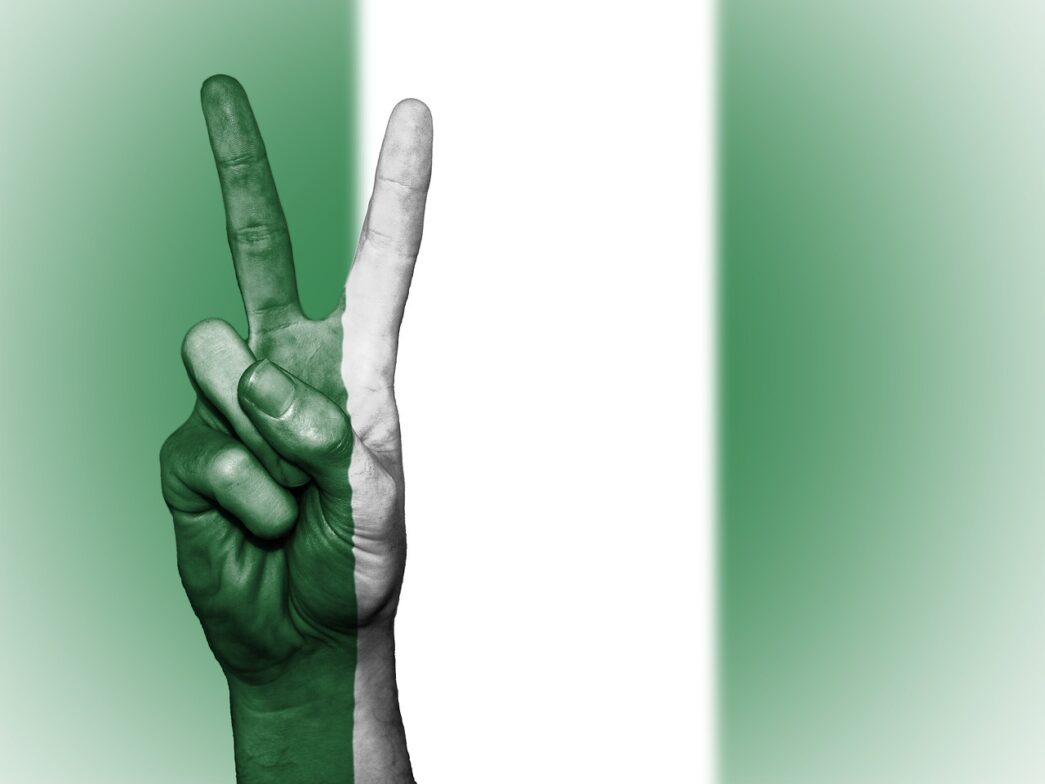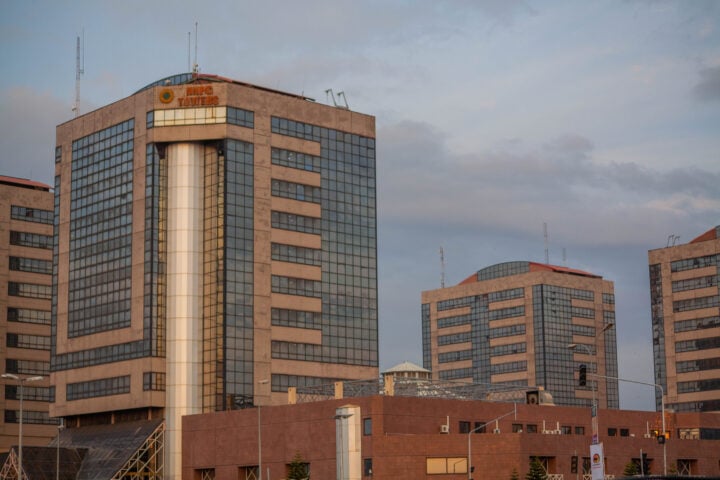“Nigeria is finished patapata!” Do you often hear that? I have observed over time that there are people who get excited by negative news concerning Nigeria. If the National Bureau of Statistics (NBS) reports that we have recorded a negative GDP growth rate or the economy is heading for a recession, they will be the first to share the news. If the NBS says unemployment and inflation rates have skyrocketed, they will circulate the news with full determination. But if the same NBS says inflation rate has slowed or unemployment has dropped, they will scoff and start questioning the credibility of the data. The only acceptable NBS data to them is the one that says things are bleak.
When foreign companies shut down operations and leave our shores, these guys roll out the drums. It is yet another confirmation that “Nigeria is finished patapata”. It doesn’t matter if the same companies are also shutting down in many other African countries as a result of a change in business strategy or because of local (and global) economic challenges. As long as a foreign company is leaving Nigeria, that is all that counts. “Nigeria is finished patapata!” Some Nigerians are over the moon. It is a confirmation of their theory that nothing good can come out of Nigeria. But when a new foreign company opens shop here, they tactically go mute or belittle it and explain it away. They sound sad.
For over a decade, multinational oil companies have been divesting from their onshore investments in Nigeria. We know why. Oil theft went out of hand, pipeline vandalism became epidemic, and host communities got more hostile, among several other factors. The oil companies have been selling their onshore assets to local consortiums while shifting focus to the more secure and more favourable deep offshore fields where oil theft is next to nil, where there are no host communities apart from the congregation of sharks and dolphins, and where pipelines cannot be vandalised. But the lovely news for some is that they are leaving Nigeria in droves. And this calls for champagne.
So, when it was announced recently that Shell had made a final investment decision for a deepwater oil and gas project, it tasted sour in the mouths of some people. This is a $5 billion investment. Five billion dollars. Depression instantly set in for some guys. Their day was ruined and they must have lost their appetite. They find the fact that Nigerian companies are taking over the onshore assets of the multinationals very heartbreaking. They would rather no local company has the capacity to pull the technical and commercial resources to seal these mega deals. To the best of my knowledge, divestments have been happening regularly since 2010 and Nigerian companies are benefiting.
Advertisement
When Nigerians were experiencing absolute chaos in passport application, it was an international embarrassment. I was ashamed as a Nigerian. Things have eased significantly, but Mr Olubunmi Tunji-Ojo, the interior minister, has taken a step further by leveraging on technology to make processes smoother. With a successful pilot scheme, Nigerians will soon be able to renew their passports via a “contactless system” — from the comfort of their homes. This is expected to be rolled out in more cities in 2025. Also, travellers will soon be using e-gates at the international airports to reduce time wasted by manual processing. This is not the sort of news some people love to share.
Whenever foreign organisations or personalities say something negative about Nigeria, come and see the radiation on the faces of some Nigerians. It’s as if they hit the jackpot. Whether it is Transparency International (TI) rating Nigeria as the most corrupt country in Africa or Prime Minister David Cameron saying “Nigeria is fantastically corrupt”, you can literally “swim” in the unspeakable joy of some Nigerians. They will share it on Facebook, WhatsApp, X, Instagram and every platform available on Planet Earth. But if the same TI says Nigeria has improved or a foreign political leader says Nigeria is making some progress, these guys will be downcast — or even allege they were induced to say so.
You may not believe this, but there are music stars who made their fame and fortune in Nigeria before gaining global recognition — only to travel out and start advising people not to come to the country. There are people who schooled in Nigeria virtually for free only to “japa” with their certificates and start deriding the country as “useless”. Doesn’t that mean their certificates and work experience are equally useless? What about the people who made their money here before migrating but then go on social media to run down the country mercilessly? Some are still sending SOS messages home to help them stabilise but they will never stop denigrating this same country.
Advertisement
I have been ruminating over this negativism. In trying to understand why some Nigerians are like this, I first asked myself this question: did I ever feel this way about Nigeria at any point in my life? My mind went back to the 1990s and 2000s and I realised I used to be negative — even if not totally — about Nigeria. This is bizarre because I consider myself to be an optimist. I always try to see the sunny side of life. If you tell me “Nigeria is finished”, my instinctive response has always been: “Congratulations! Hope you are happy now?” To be honest, till this day, I still occasionally find myself negative and despondent. It is hard not to be. I am an optimist quite all right, but I am not stupid.
After much thinking about the things that spur the “Nigeria is finished” retort, I identified two broad categories of negativism. On the one hand, there is “benign negativism”: some people say and share negative things about Nigeria not out of a malicious heart or with a destructive intent. Rather, they are frustrated and angry at the state of the nation. When they say “Nigeria is finished”, it is not a wish or a curse but an expression of frustration. On the other hand, there is the “malign negativism” among those who have written Nigeria off and have concluded that nothing good can come out of the country. To many in this category, it is of no use expecting anything good from the “contraption”.
I took a deep dive into these two categories and identified at least five variants of negativism. The variants cut across the categories and could be in spectrums — so they are not mutually exclusive. The first of the five is “disappointed love”. Many have invested so much emotion in Nigeria and are disappointed with the outcome. They expect Nigeria to be far better than this. Actually, disappointed love is a term describing the heartache people have when their expectations are not met in a relationship. It could be that their feelings are not reciprocated, promises are broken, or there is a form of abuse going on. That sums up the feelings of many Nigerians who have benign negativism.
The second variant of negativism is what psychologists call “coping mechanism”. It is a psychological strategy humans adapt to deal with unpalatable circumstances. It could be conscious or unconscious. When some people say “Nigeria is finished”, they do not mean it in a malicious manner. Rather, that is their own way of managing the trauma of poor governance that they are being subjected to. When they share bad news about Nigeria, it is a way of “detoxifying”. It is also like a resolve — “I am not surprised things are like this”. They have tuned their minds to live with the disappointments. They are not against Nigeria’s progress but have also conditioned themselves to expect little or nothing.
Advertisement
The third variant of negativism is self-justification. They use all negative news about Nigeria to say: “I was right, wasn’t I?” The late Peter Wason, cognitive psychologist, called it “confirmation bias” — the tendency to favour information that confirms or strengthens your beliefs or values and is difficult to dislodge. This is common among Nigerian migrants. Even if they are not having the best of times abroad — perhaps they are being treated as second-class humans — they try to justify it by amplifying bad news about Nigeria to show that they were right to “japa”. Many would-be migrants and restructuring activists are also affected by confirmation bias and self-justification variant.
The fourth variant manifests in those who have completely, irreversibly and irrevocably given up on Nigeria. They are comprehensively disenchanted with the country and there is no amount of good news or positive developments that can dissuade them. Some feel sidelined, neglected and irrelevant in the scheme of things. Others have their own ideas of how the country should be structured or governed and until their position is accepted and implemented, they are not interested in any good thing coming out of Nigeria. Every positive development irritates them. Every negative development is evidence that the country is doomed and nothing good can come out of it.
There is a fifth variant which is borne out of partisanship. The things some people are defending today are the things they attacked when they were not in power. The things some are attacking today are the things they defended when they were in power. When the NBS rebased the GDP under the PDP in 2014 and we became Africa’s biggest economy, the APC ridiculed it. In 2024, the NBS released favourable employment data under the APC and the PDP mocked it. Need I remind us of the deregulation of petrol pricing by the PDP in 2012 which was opposed by the same APC elements now celebrating their own deregulation as a great success? I think partisan hypocrites fit each other.
This is not an invitation to be blind to Nigeria’s shortcomings and challenges. We cannot deceive ourselves by saying everything is all right. Plenty things are not all right. We can all see things with our eyes. In fact, every society needs critical — sometimes cynical and sceptical — voices. The danger is when we become perennially and incurably critical to the extent that it is beginning to impair our judgment. It can become a terminal ailment. Still, those in power should not treat every negativity as malign. To be clear, Nigerians have every right to be worried about their country and to highlight every negative development. It is now the job of those in authority to lead us out of the woods.
Advertisement
Nevertheless, we can still be kind to Nigeria by differentiating the country from its leadership. They are not the same: presidents come and go but Nigeria remains. We can love Nigeria our country with all our heart and hate bad leadership with passion. We can celebrate our little strides and still criticise corrupt and inept leadership. It is sad that if you want to hear the worst things about Nigeria, you need not ask a foreigner. Ask a Nigerian. With our own mouths, we damage and demarket our country before outsiders and then complain that we are being maltreated abroad. We should not be so negative that we cannot see anything good in Nigeria. If Nigeria is finished, what is our gain?
AND FOUR OTHER THINGS…
GOODBYE 2024
Advertisement
In a couple of days, we will bid 2024 good bye. This year qualifies as one of the toughest for Nigerians. It was the year electricity tariffs were tripled for Band A, the year the naira reached its lowest against the dollar, and the year petrol sold at its most expensive pump price ever. I will say this again: I am not against reform and I have my reservations about the pacing and spacing of President Bola Tinubu’s policies, but the most upsetting thing for me is that the message of sacrifice is not being lived by government officials. I want to see a significant change in their own lifestyles. For Nigerians, I pray 2025 will bring relief and reward for their patience and sacrifice. Amen.
NAGGING NIGER
Advertisement
The cold war between Niger and Nigeria after the military coup of 2023 is not going to thaw soon as the two West African neighbours continue to exchange diplomatic brickbats. Gen Abdulrahmane Tchiani, military leader of Niger Republic, has accused Nigeria of plotting to destabilise his country. Since the military governments in West Africa exchanged their French “colonial masters” and replaced them with Russian lords (in fact, Russian flags were flown in northern Nigeria during the hunger protests), it has been glaring that we are in for challenging times. Tchiani’s sympathisers here have been circulating fake news that French soldiers have established a base in Nigeria. Dangerous.
BEYOND FAROTIMI
Advertisement
Mr Dele Farotimi, the activist who was arrested and charged to court over allegations of criminal defamation of Chief Afe Babalola, the senior lawyer, was released on Christmas Eve after meeting bail conditions. The law should run its course, no doubt, but there is something ugly about putting someone in handcuffs for defamation. I will continue to argue that defamation should be a civil case — not a matter to be prosecuted by the police. Civil society organisations and legal experts must ramp up the campaign to de-criminalise defamation. It is subject to abuse and misuse and anyone can be a victim. It is not enough to lament — we must work hard to get the laws amended. Crucial.
NO COMMENT
I watched President Tinubu’s media chat on Monday. I think the panel did a good job. The president also spoke confidently about his stewardship. He is very sure of himself — even if many of us disagree with some of his pronouncements and policies. But did you hear the president say this? “People are learning management. A friend used to brag to me that he has five Rolls Royce (cars). The other day I saw him in his Honda Accord. He said ‘that’s where you put me’. I told him ‘I did not put you there’. But he said it was because of fuel prices that he could no longer maintain five limousine-type vehicles.” He can afford five Rolls Royce cars but can’t buy petrol? Wonderful.
Add a comment













